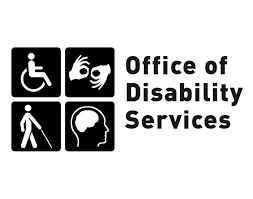Filing for benefits and services for your child with disabilities differs by state. What doesn’t differ is the general process. This is overwhelming at first, but worth it, if your child has more services. Whether you’re applying for a Medicaid Waiver, SSI, or community-based services, there are some important things to remember.

Apply. If your child is receiving special education services through their public school, there are programs and benefits that you should access. Even if you have great insurance, apply for these services because Medicaid and state supplemental insurance are more than medical insurance. There are services and equipment your child will have access to once approved. It takes some work to gather the information, but it is worth it. Even if you are not approved, you will need this information when your child turns 18.
If your child has a disability, they may receive Medicaid, regardless of your income. Ask your county or state Mental Health Department about a TEFRA Waiver, also known as a Katie Beckett Waiver. This allows Medicaid to only use the child’s income when determining if they qualify for Medicaid.
Stay Organized. I cannot stress enough how important it is to organize all your paperwork as you are going through this process. Trust me, you will need it again and it will save you a lot of trouble if you can easily access it. Use a binder or scan paperwork and save it as a pdf for easy access. Most healthcare systems have online access to information, but if you have doctors from different systems, it’s difficult to manage information easily this way.
Don’t Accept No. Do not accept a denial or a “no” from anyone. Appeal everything. It can be exhausting, but unfortunately, many things are denied with minor consideration because these agencies are overwhelmed. CALL the agency if they deny you. Once you get a hold of a person, they can help you fix what caused the denial. This is what we did many times over the years and it is how we learned about so many resources. Sometimes it is something small like you didn’t include a doctor’s contact information.
Read Carefully. Follow all directions and keep your information organized. Do not send something to an agency if it is missing information. The people working for these agencies (right or wrong) are too busy to contact people who didn’t follow directions. Yes, that is harsh, but the people working for these agencies are overworked. They prioritize the paperwork done correctly and neglect the rest until someone has spare time to address it.
Don’t Be a Superhero. Also, remember that you can’t do everything. There are many times (as you already know) when things are just too much. Back off, regroup, and try again. If you are upset, frustrated, and/or angry with whoever you get a hold of, you will probably be too emotional to hear what they are telling you or get advice from them. Split the responsibilities if you can. I worked with the doctors, therapist, school, and CMH. My husband was in charge of escalating matters if we received a denial. By that point, I was frustrated, and he could ask for advice or ask questions I couldn’t think of asking because of my frustration. It doesn’t have to be a spouse, ask a relative or close friend to help.
If you are unsure where to get services, ask your child’s school. They should have a social worker who can help. If not, ask your doctor’s office. They have social workers and care managers who specialize in this. Or, contact your local Arc (their website has a “find a chapter” link) or EasterSeals. These organizations are a wealth of information.


